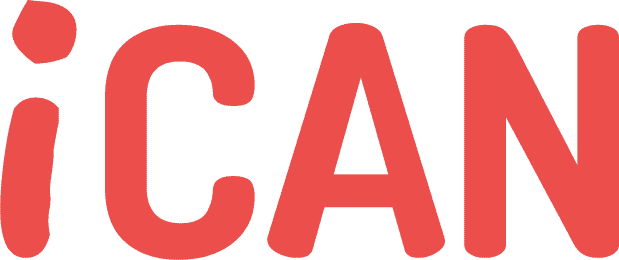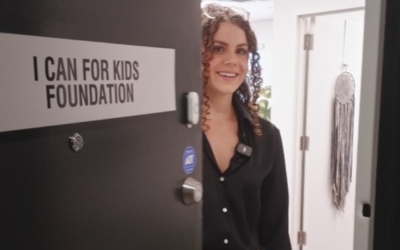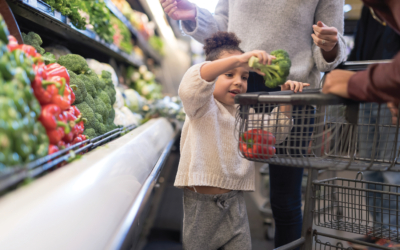Updated on February 7, 2024
Plenty of research shows that the primary cause of food insecurity is a lack of income. Therefore, it’s most effective to respond to this ever-growing issue with policies and solutions that protect and improve household financial resources. This sensible approach offers low-income households much more stability when faced with financial shocks, such as sudden job loss, unexpected healthcare costs, or a weakened economy.
What do we know about poverty in Calgary?
The rates of poverty in Alberta and Calgary are somewhat difficult to validate because the most recent statistics don’t integrate the negative impact of escalating inflation that began in February 2021. Prior to the pandemic, the rate of poverty in Alberta was slowly declining. However, the surge in demand for the I Can for Kids (iCAN) grocery gift card program doesn’t mirror this downward trend in the least. Similarly, a recent report from Calgary Foundation highlights that a staggering 25% of Calgarians cannot afford to meet all their basic needs.
There’s a strong likelihood that poverty rates initially appeared to drop in 2021 because more than two-thirds of Canadians benefited from income-based pandemic relief programs. Moreover, households with lower incomes received the majority of this financial support to ensure they could make ends meet while unable to work due to lockdowns, layoffs, and public health restrictions. The positive impact of these income-based responses simply reinforces the potential for effective policies to truly protect vulnerable groups from the negative social and health impacts of poverty.
Who is at higher risk for poverty in Calgary?
Although the 2021 national census collected useful data about the financial struggles of Canadians, this information doesn’t reflect our current economic climate after three years of unprecedented increases in the cost of all basic needs, including food. In November 2023, Statistics Canada updated the Market Basket Measure to define how much income a family of four requires to afford all their basic needs in different cities across Canada. These two data sources highlight the following key patterns:
- the total cost of all basic necessities is highest in Calgary compared to every other major city across Canada
- poverty rates among children under age 18 are as high as 9%
- single-parent families are nearly five times more likely to experience poverty than two-parent families
- the rate of poverty is 50-100% higher among immigrants and refugees than among the Canadian-born population
- 16% of Arab and West Asian households and 12% of Black households live in poverty compared to about 8% of the general population
- Indigenous households are nearly twice as likely to live in poverty compared to non-Indigenous households
- poverty is more common in large urban areas due to a higher cost of living
How do grocery gift cards help?
In April 2020, iCAN transitioned away from food provision to implement grocery gift cards as our sole vehicle for support. We realized this change would create a more effective way to address the economic barriers of food-insecure households and help ease the negative impact of inflation. Our agency partners target our program to the families in greatest need who represent the most vulnerable social groups across our city:
- single parents
- immigrants and refugees
- visible minorities
- Indigenous households
- low-wage workers
- families living with disabilities
- unemployed, intermittently employed, and under-employed parents
Our research with the University of Calgary demonstrates how our new model helps reduce financial distress, particularly when a household must choose whether to pay rent or buy groceries. We’d like to share a few client stories that highlight the benefit of offering an income-based response to alleviate food insecurity:
- A single mother shared how: “This past year has been merciless for many people and extremely hard financially. With the cost of food increasing significantly, I would not have made it through some months without the help of I Can for Kids.”
- A young couple with low-wage jobs notified us that: “The grocery gift cards helped our family get through the year, which was financially hard for us. Each card went to snacks for our toddler and food for our baby. Thank you so much.”
- A single mother sent us this note: “My littlest one was just in the hospital twice and I had to use the last of what money I had on parking. I am very thankful for the support while we are recovering. The grocery gift cards ensure I can get food, buy my baby cold medicine, and a pick up a few essentials to get us through this period.”
In a time of such great economic uncertainty, you can help support low-income and food-insecure families to buy their kids the healthy foods they need and enjoy.
To join iCAN’s expanding list of sponsors and champions, check out the different ways you can get involved or donate.
To learn more about I Can for Kids and their unique approach to childhood food insecurity, visit www.icanforkids.ca
About Donald Barker
Donald Barker has worked as a registered dietitian for more than 25 years. He also has a professional background in communications and has long advocated for populations who face adverse, unjust, or systemic barriers that lead to higher rates of poor social, mental, emotional, and physical health outcomes. Donald currently volunteers as an Advisor with iCAN to support our transition towards evidence-based approaches that help improve the well-being of children in Calgary who live in low-income and food-insecure households.
About I Can for Kids Foundation
I Can for Kids works closely with multiple agency partners to target and distribute grocery gift cards to food-insecure families who are most in need. The iCAN grocery gift card program is a more dignified and inclusive approach to dealing with food insecurity, allowing families to shop where everyone else shops and to choose foods that are appropriate for their health and cultural needs. Explore their website to discover more about iCAN’s impact over the years.
For more information and media inquiries, please contact iCAN Executive Director, Bobbi Turko at bobbi@icanforkids.ca.




